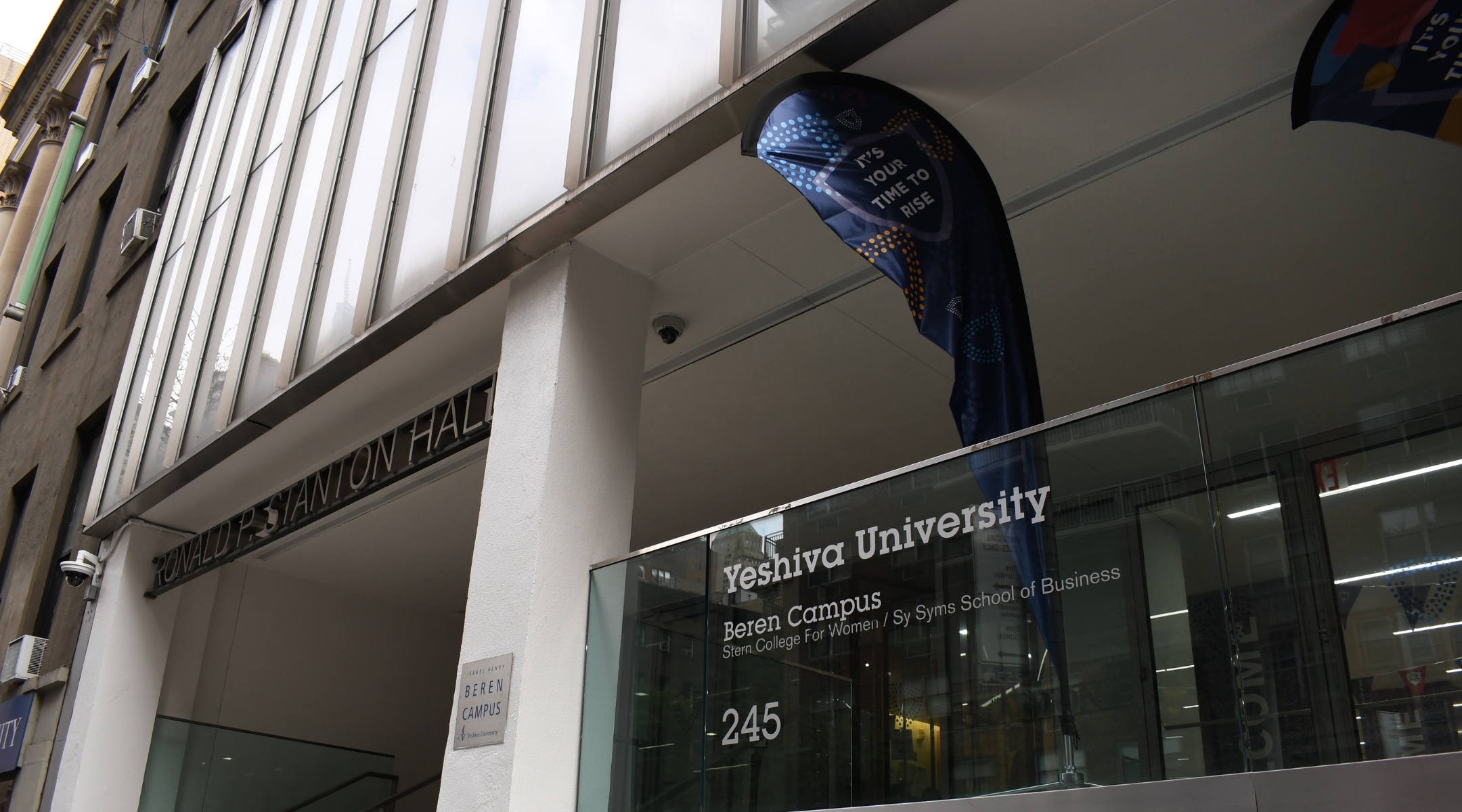Just days out from the presidential election, Shalva Perlman doesn’t know for sure how she will cast her ballot.
The two issues on her mind: protecting abortion rights, and supporting Israel.
The issue that she expects to prioritize in the voting booth: Israel.
“I’m having difficulty voting at all,” Perlman said. “I’ve been a registered Democrat for a while, but I don’t know. It’s difficult to vote Democrat with everything happening in the Middle East right now.”
Perlman is a junior at Stern College for Women at Yeshiva University, the flagship Orthodox educational institution. And as an Orthodox Jew, she is part of a constituency that has moved to the right and toward Trump in recent years, driven in large part by attitudes on Israel.
According to a recent survey conducted by the YU Commentator, Yeshiva University’s student newspaper, 84% of the 122 Stern College students surveyed say they will vote for Donald Trump. That puts them in line with other surveys of Orthodox voters, which predict large majorities for the Republican candidate.
But Perlman matches most of her Stern classmates in another way: She is opposed to the Supreme Court stripping away federal abortion protections — an issue that is at the center of Kamala Harris’ campaign. Nevertheless, she says Israel will probably drive her vote.
“I think my alliance is obviously staying with my country more than that at this point,” Perlman said. She added, “It’s basically all about Israel in my family. And that’s what we’re seeing in the election.”
The tension Perlman is articulating is what puts Stern’s population of around 1,000 students in a somewhat unique spot: Like women their age, a majority support abortion rights. But like their community, a majority will be voting for Donald Trump, who has praised the 2022 Supreme Court ruling even as he has said he would not sign a federal abortion ban.
Stern students told the Jewish Week that there’s little conflict on campus when it comes to politics. While there are student clubs at Y.U. for both Democrats and Republicans, the survey found that support for Trump is above 80% at both campuses. Israel tends to dominate the political agenda at the school.
“My vote is to help Israel,” said Layla, a first-year student and first-time voter who declined to give her last name, and who cast her ballot by mail in California. “Because I firmly believe if I’m a Zionist, that’s something that I need to think about when I’m voting. Yes, I’m an American, but I’m also Jewish.”
Layla said she doesn’t enjoy discussing politics and didn’t volunteer who she was voting for. Her roommate Talia did: Trump.
“I just think he’s good towards Jews,” said Talia, who also declined to give her last name. “He may not be a good person, but he’s good towards Jews.”
Daphne Lazar Price, the executive director of JOFA, the Jewish Orthodox Feminist Alliance, told the Jewish Week these are the exact conversations she has been having with young American women voters, whether they’re voting in the United States or casting absentee ballots from abroad.
“Young Modern Orthodox women are incredibly worried about Israel and who would be the better candidate to help ensure its safety in the immediate and in the long term,” Lazar Price said in an email. “That said, young MO women are also worried about access to comprehensive reproductive health care (abortion, birth control and IVF) as the domestic signature issue.”
Many Jewish women in the United States, including some who are Modern Orthodox, have taken up reproductive rights as a key issue, with some suing their home states on religious grounds to try to regain access to abortion. (American Jews favor abortion rights, more than any other religious group, according to public polling. And traditional Jewish law permits, and even requires, abortion in some circumstances.)
“They recognize the weightiness of each of their votes because the stakes in this next set of elections are so high,” Lazar Price added, speaking of young women voters. “They are also rightfully concerned about the rise of antisemitism and how they perceive each candidate will staunch or fuel those flames.”
Some Harris supporters at Stern don’t see any contradiction between their Orthodox identity and their vote. For Selma Spinner, a political science student and co-president of the Yeshiva University Democrats, the party’s values and Jewish values go hand in hand.
“I try to think about everything I do as a Torah Jew, as a Modern Orthodox student,” Spinner said. “And everything I do and believe is centered around that. I find that I identify a lot more with — I would even venture to use the word, ‘humanity,’ of the Democratic Party, and in this specific election, of Kamala Harris. And I find that I as a Jew can identify more not only with her policies but also with her rhetoric.”
But others said there is a tension between liberalism and Orthodoxy — and that they’re choosing the former at the ballot box.
“The liberal agenda in general goes against a lot of traditional Jewish values,” said Talia Isaac, a sophomore from Teaneck, New Jersey, who is majoring in political science and cast her vote for Kamala Harris and Tim Walz by mail. “So Orthodox Jews may be less likely to vote for a candidate who believes in expanding access to reproductive healthcare, who believes in expanding access to gender-affirming healthcare, things like that.”
Isaac said she doesn’t defer to others when she thinks about the issues that determine her vote. In addition to reproductive rights and Israel, she has worked with multiple organizations that focus on obtaining legal assistance for survivors of sexual assault.
“The only aspect of my Judaism that I consider when I vote might have to do slightly with my protections and my rights as a Jewish citizen of America,” Isaac said. “I do want to make sure that I’m protected.”
She added, “For the most part, I find that the reasons I vote are because I, for my own values and my own reasons, align with the policies and the values of a certain candidate. And it really has very little to do with my Jewish identity, with the Torah, with halacha [Jewish law]. I just feel like I have my own personal code of ethics and my own personal values.”
CORRECTION: The name of the student newspaper that conducted the survey is the YU Commentator, not the YU Spectator.
JTA has documented Jewish history in real-time for over a century. Keep our journalism strong by joining us in supporting independent, award-winning reporting.






